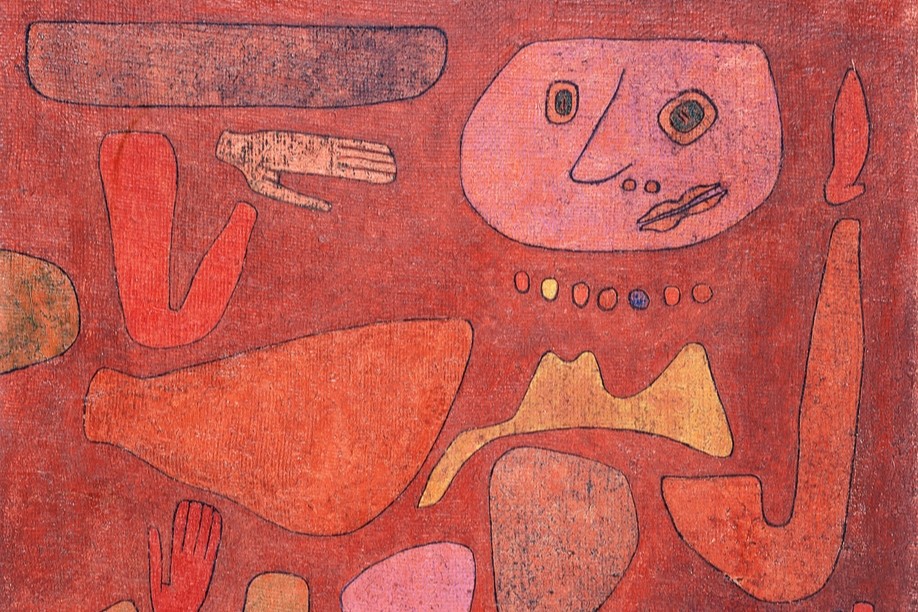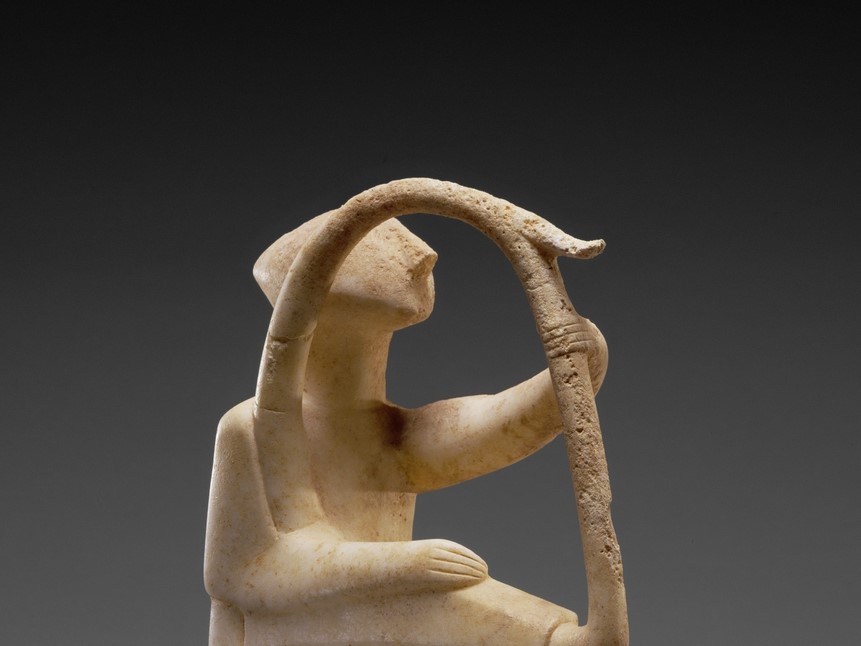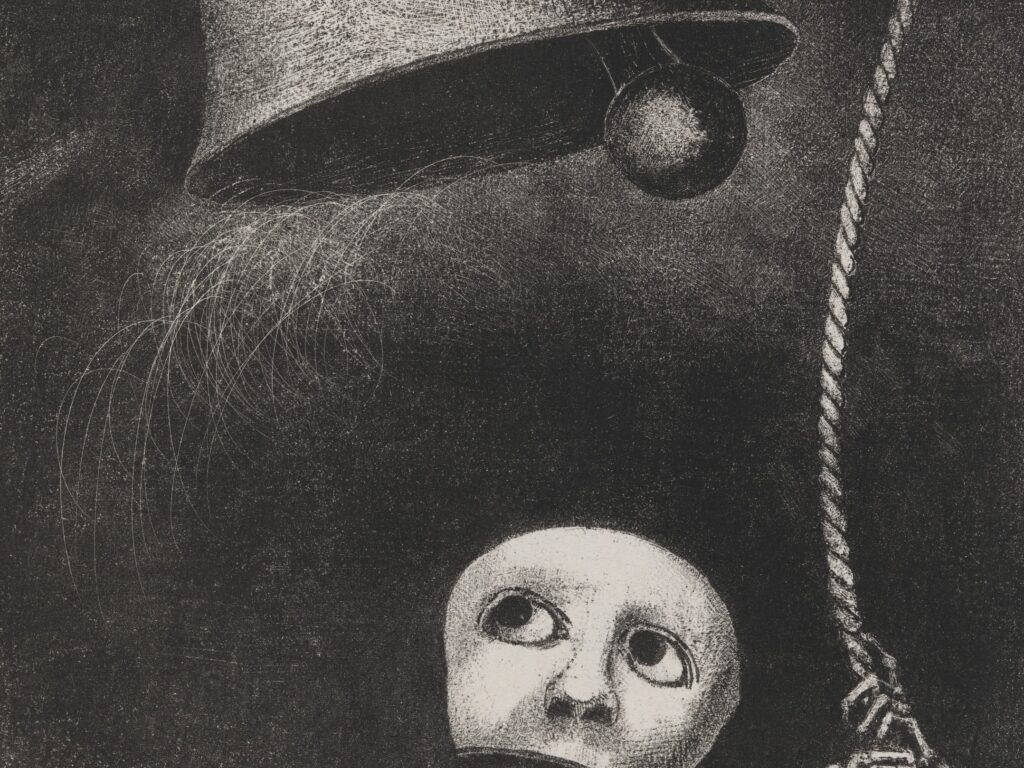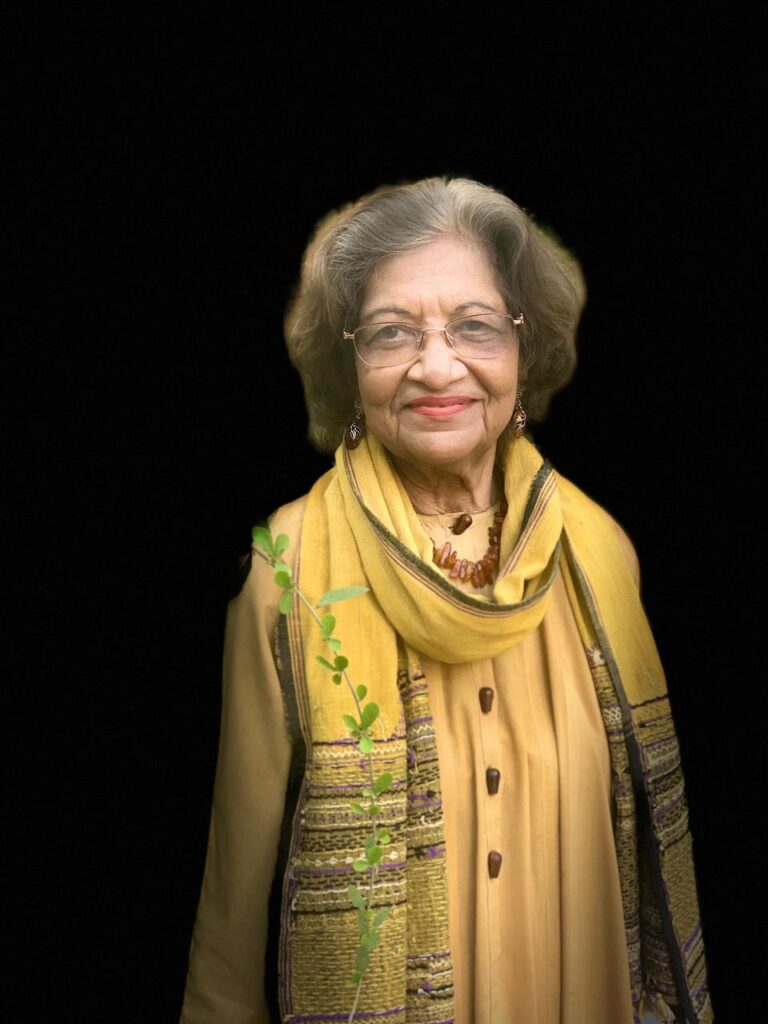Short Story :: Mridula Garg
(Translated from Hindi Chautha Prani, by the author)
“And what is his name?” Jyoti asked.
It was a simple question but undue emphasis made it sound like a reprimand. Three pairs of eyes stole a glance at her then turned to look at the fourth person in the room. No one said anything. The fourth one sat with a vacant face, sipping his tea silently. Civilized people did not slurp their tea; nor did he. But there was a difference. They chose to be soundless, he was fated to be. The silence continued. She knew three of the people in the room by name; B.N.Sarkar, Achla, his sister and Shyamala, his daughter but not the fourth one? What was his name?
As for B.N. Sarkar, most people called him B.N. but not she. She called him Mr. Sarkar even though he felt free to call her Jyoti. She had known him for years but had met the other three, just two days back. What did the initials B.N stand for? She had heard his late mother call him by his given name but could not recall it. Anyway at the moment she was more interested in knowing the name of the fourth person. So she smiled and with a glance at the unknown person, said sweetly, “Mr Sarkar, you did not introduce us. What should I call him?”
Mr. Sarkar smiled condescendingly at this unwarranted intrusion. He was not handsome but the smile lit his face with mesmerizing effect. It was both arrogant and captivating; it enchanted even as it belittled the onlooker. Perhaps it was only women who felt the enchantment because they knew no woman had ever ensnared him. It was a challenge and a declaration of victory. They saw the failure of the entire female world in it and felt doubly affronted and excited.
His sitting room was full of women. The fourth one’s daughter, Shyamala was polishing her nails while his wife, Achla was busy dusting books. Both paused and looked at Mr. Sarkar. He kept on smiling; their eyes seemed hooked by it. Unaware, the fourth one sipped on. It was impossible that none of them knew his name; after all they were family.

Jyoti was the only outsider. She went to Mr. Sarkar’s house from long habit when a trip took her to Mumbai and found the family members there. She had felt quite at home with the women but the man was a constant irritant. She felt she had to know his name. Not that it mattered to her. It was just that she was not willing to put up with the affront of asking a question and not being answered. Had she not been an arrogant woman, B.N. Sarkar would not have remained Mr. Sarkar for that long. She would have called him… what? What did the initial B stand for? What had his mother called him? Bankim, Benu, Banshi…what? Suddenly a name shone out of the dark interiors of memory, Beeren! Yes, she would have called him Beeren; dear, dearest Beeren.
“Beeren,” said Shyamala,” You can call him Beeren.”
“Whom? What?” she spluttered.
The girl pointed at her father, “Him,” she said,” everyone calls him Beeren.”
He looked up to glance at her briefly but his face remained stony.
Jyoti looked from one man to the other and suddenly collapsed with laughter. Dear God, Beeren!
He did not look at her. As he stood up, his body shook with a passing shudder which lasted barely for a moment. But as she felt the agony of an insect crushed underfoot in it, her flesh cringed in empathy. The cup rattled in his hand and the next instant he was out of the room.
Jyoti sat frozen with self-disgust.
“More tea, Jyoti?” Mr. Sarkar was asking her, “He has gone to the kitchen to make some.”
“Who?” She said stupidly.
“Beeren,” Shyamala said, her laughter ringing like Jyoti’s
“What’s his full name?” Jyoti tried to regain lost ground but did not repeat her question when it went unanswered. She felt drained of self-confidence.
She saw him come out of the kitchen with a cup and go to his room. The door closed after him. There had been no clatter in the kitchen when he was there; no clang of the door now as it closed after him. Why did he never make a sound? He did not or he could not?
She felt restless throughout the evening and retired to her room early. She was hunting through Mr. Sarkar’s formidable collection of books for something to read in bed, when he came and handed her the Bangla novel, Na Hanyte. Divinely passionate, he pronounced it to be. That drove the fourth one right out of her mind and replaced him with the first one. What did Mr. Sarkar know of love to call a love story, divine or passionate? She refused to read it, tossed in bed for a while but eventually fell asleep.
When she entered the sitting room early next morning, she heard Mr. Sarkar propose, “How about a trip to Khandala?”
“What for?” she asked.
“Weekend getaway.”
“Indeed! People go there to make illicit love. Why would you go?” She was still angry.
He smiled and said, “Who knows, you might find a story there.”
Her lips curved in a sardonic smile but she could not quite pull it through. It sat on her face like a grimace; a sorry imitation of his cynical but enchanting smile. There was an uncomfortable silence. Finally he came to her rescue, saying, “I had decided to take them to Khandala the day they came here. Now that you are here, why not come with us?”

So it was a family affair. She smiled her everyday smile and asked, “Would all of us fit in the car?”
“Five of us? Sure.”
Suddenly Shyamala said in a vexed tone, “I have nothing to wear.”
“Wear anything,” came from Achla.
“Anything! How like you to say that. Do you know Khandala is the haunt of film stars?”
Mr. Sarkar smiled. “Wear the skirt I got you from Hongkong.”
“That’s more like it,” she exulted.
Jyoti left them to pack her things. She was back in the sitting room by eleven to see three other people assembled there.
“Shall we?” said Mr. Sarkar as they moved towards the door. Jyoti looked for the fourth one. He was not to be seen. Her eyes went to the closed door of his room and remained riveted there.
“Come,” Achla called out.
“What about him? Isn’t he coming?” she had to ask.
“Whom?” three voices asked in unison.
Something prevented her from saying Beeren boldly.
Instead she turned to Shyamala and said, “Your father.”
“Baba?” Shyamala was taken aback, then mumbled in embarrassed tone, “But he…he never goes… anywhere…”
“Why not?”
“Because he does not want to, that’s why! He does not want us to go either,” Achla burst out.
“Then why are you going?” Jyoti retorted.
“Bar Da…” Achla mumbled after a moment’s shocked silence.
“Beeren!” Mr. Sarkar called.
The door swung open and he came out to stand before them, soundless as ever.
“Do you want to come with us?” he asked.
He shook his head.
“You can if you want to. We are five people including the driver. A sixth one can be accommodated.”
He again declined with a nod of the head.
“Please, you have to come! It’s not right, is it, for one person to remain alone in the house?” Jyoti cajoled, her eyes fixed upon his face.
“No,” he said without meeting her gaze.
“You’ll come then.”
“No.”
She turned to Mr. Sarkar and said sternly, “Ask him.”
He smiled. “I never force anyone.”
“Right then, I won’t go either.”
He said nothing, just sat there, smiling his Mona Lisa smile. But the women got thoroughly agitated. How can that be? You have to come. Come Baba. You can come once, can’t you? No work, nothing. Just fuss. Words poured like waves crashing upon one another.
“Let it be. Don’t force them,” Mr. Sarkar admonished and the tide subsided, though Shyamala did throw a pained glance at her father before following the uncle out.
Jyoti did not hear the fourth one leave her. When she turned towards him, she found that he had gone to his room and closed the door after him. She refused to accept defeat. The silence seemed so inexorable that she could not bring herself to knock on the door. Instead she called softly from outside it, “Dada, Dada!”
The silence did not break but there he was, right in front of her. It threw her; had the door opened at all? All she could say in her confounded state was, “What’s your name?”
“Beeren,” he said stolidly.

“Not that,” she said, “What’s your full name?”
“Beeren,” he repeated.
“I mean like Mr. Sarkar’s full name is B.N. Sarkar, What’s yours?”
“B.N. Sarkar.”
“And what do the B and N stand for?” she asked as the old fancy resurfaced.
“Beerendra Nath.”
“Beerendra Nath Sarkar,” she caressed each syllable to evoke the image of sophistication and grandeur.
“Chief Secretary,” she added in an enchanted whisper, then shook herself out of her fancy and asked, “And you …what’s your full name?”
“That’s me. I am B. N. Sarkar.” An enchanting, familiar smile lighted his face. Entranced, she took a step forward, “Beerendra Nath Sarkar?” she whispered.
His eyes rose to engage hers but only for a split second. The next instant, he was stuttering. “Na, aami …I…only…Beeren.”
The room swallowed him before she could say anything and the door closed soundlessly after him. The silence was impregnable; she did not have the nerve to break it.
Equally proficient in Hindi and English, Mridula Garg has written 27 books comprising almost every genre in Hindi; 9 novels, 4 plays, 4 collections of essays, 2 memoirs of fellow writers, 1 travel account, 20 poems in Hindi and English and 90 short stories. Her latest work is a Memoir of her time in Hindi entitled Ve Nayaab Aurtain published in 2023. She has written one novel in English called The Last Email published in 2017-18. Her novels like Chittacobra and Kathgulab have gained iconic status. Kathgulab is taught in many Universities and colleges. Among other awards, her novel, Kathgulab was awarded the Vyas Samman in 2004 and Miljul Mann, the Sahitya Akademi Award in 2013. She received the Hellman-Hammet Grant from The Human Rights Watch, New York in 2001 and Ram Manohar Lohia Samman from UP Hindi Sansthan in 2015.
Photo courtesy- Geeta Shree
